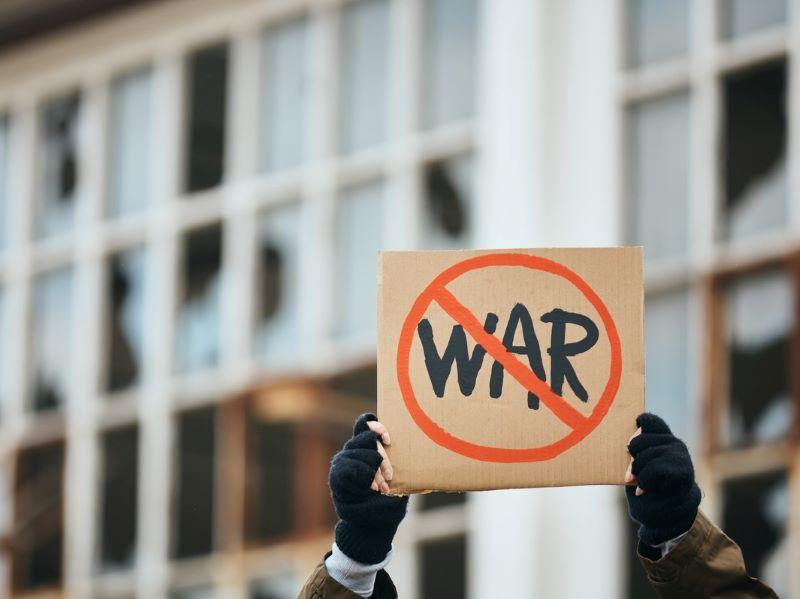
It is time to bring back peace studies

You may also like
As the world marks the 77th anniversary of the nuclear bombing of Nagasaki on 9 August, the risk of renewed nuclear attack has perhaps never been as real in the eight decades since as it is today, leading to renewed calls from governments and citizens around the world for the abolition of nuclear weapons. But in Nagasaki, the anniversary will be marked with an even broader and more ambitious call: a call for the world to recommit to peace. What role can universities and academics play?
“Teach Peace” is a slogan from another era. To many today, peace is the stuff of hippy idealism belonging to a simpler time. The peaceful resolution of conflict seems like too distant a goal in the context of a raging war in Europe, threats to territorial sovereignty in Asia and mass killings in the streets of the United States.
Yet the nuclear survivors and their children in Nagasaki are adamant: the root cause of nuclear proliferation is not the weapons, but a lack of commitment at all levels of society to taking action for peace. A commitment to ensuring there are “No More Nagasakis” demands a deeper understanding of, and commitment to, the daily practice of peacemaking.
- THE Campus collection: Higher education’s role in upholding democracy
- Education for humanity: designing learner-centric solutions for refugee students
- Negotiating the minefield of global online teaching: dealing with difference
If the abolition of nuclear weapons is largely a matter of national government policy, peace-making is as much a local as a global responsibility. Programmes in citizen diplomacy such as sister-city relationships and academic and artistic exchanges have long recognised that the fabric of peace has many more threads than government-to-government ties.
It is also a matter of individual commitment and action. Over the last 75 years, the world has narrowly escaped nuclear attack through the heroic actions of little-known individuals who defied protocols and, in some cases, direct orders. In 1983, Stanislav Petrov, a Soviet officer working at a nuclear early warning system, refused to alert his superiors to what the computers showed as US nuclear strikes, and were later determined to be a system malfunction. If Petrov had strictly followed instructions and sounded the alert, ensuing nuclear strikes could have wiped out large swathes of the Soviet Union and NATO countries’ populations. Similarly, at the height of the Cuban missile crisis, a Soviet submarine with authority to launch a 10 kiloton nuclear torpedo didn’t end up doing so after one officer, Vasili Arkhipov, refused. He thereby foiled the consensus protocol needed by all officers on board before launch, averting unspeakable levels of destruction.
This begs the question: how do we update our understanding of the pragmatics of peace-making for a violent and divided world, and equip future leaders to take effective and courageous action towards peaceful outcomes? It is time for universities to step up to the challenge.
So, what should universities do?
First, universities can commit to peace in their teaching, research and engagement activities. For example, the presidents of the U7+ Alliance of World Universities will convene at Keio University in Japan next year, ahead of the 2023 G7 Summit in Hiroshima set to centre on global peace and security. Under the theme of “The Pen is Mightier than the Sword”, the presidents will discuss how to enhance student access to courses on peace and security, they will review data on university involvement in weapons research and find ways to align research with international obligations, highlighting especially policy-relevant initiatives that include non-Western perspectives.
Second, mapping courses to the United Nations Sustainable Development Goals (UN SDGs) – as we did recently at Northwestern University – can broaden students’ perspectives and help them build individualised paths of study around UN SDG 16, to promote peace, justice and strong institutions.
Peace-making is a skillset critical to leadership in today’s global environment. It requires listening, empathy and analysis skills, as well as deep comparative knowledge of the history of conflicts, their resolutions and their deeper causes. Universities can expand opportunities for experiential learning in conflict resolution through field research projects, internship programmes and conflict management discussions or simulations with practitioners, to name a few strategies.
Rejuvenating peace studies for the 21st century
Two generations ago, after the detonation of the first nuclear bombs, scientists founded peace studies programmes at universities to surface novel approaches to ending conflicts, using methods from a diverse spectrum of fields including political science, sociology, psychology, history, religion and more. Global funding for peace studies peaked in the 1980s but started to taper off in the 1990s following the end of the Cold War and continued trending downward in the 2000s, with programmes shuttering at UC Berkley, the University of Kansas, Tel Aviv University and the University of Sydney.
With the collapse of the post-war Pax Americana, it is time for universities around the world to step up and collaborate across national borders to invest in research and education devoted to a sophisticated understanding of the parameters and pathways of peace. This means incorporating traditional research in international law and institutions, nuclear non-proliferation and national security, but also widening the lens to consider new actors such as global social media and global and regional citizen movements and networks and updating traditional methods of nonviolence with new technologies such as artificial intelligence.
Crucially, it means leveraging transnational university networks to ensure that differing national perspectives and concerns are reflected in theories and methods rather than taking one national perspective as universal as prior generations did.
Notre Dame’s Kroc Institute for International Peace Studies, for example, allows students to tailor their PhD programme to their unique academic backgrounds. The institute allows students to incorporate traditional disciplines in the humanities (anthropology, history, political science, psychology, sociology or theology) to create an interdisciplinary academic position from which they can contribute unique perspectives to the development of international peace-building laws and institutions.
Princeton University has a science and global security programme where research on nuclear weapons and arms control supports the UN Treaty on the Prohibition of Nuclear Weapons. Researchers use sophisticated methods drawn from both computer science and social scientific research to model the possible causes of a nuclear war and to track linkages between past nuclear testing and current medical and environmental impacts on communities.
Likewise, Northwestern’s Security and AI Lab is using sophisticated AI techniques to predict and deter terrorist and cyber-attacks, achieve better outcomes in diplomatic negotiations and support social movements’ participation in peace-building.
Universities have always been the location in society where we identify and address root causes, and where we pursue the “basic science” research that leads to lasting future innovation. Nowhere is this spirit more needed than in the cause of creating the next generation of global peacekeepers.
Annelise Riles is a member of the Council on Foreign Relations and will be appointed Nagasaki Peace Correspondent on 10 August. At Northwestern University, she is professor of law, associate provost for global affairs, and the executive director of the Northwestern Buffett Institute for Global Affairs.
If you found this interesting and want advice and insight from academics and university staff delivered directly to your inbox each week, sign up for the THE Campus newsletter.


